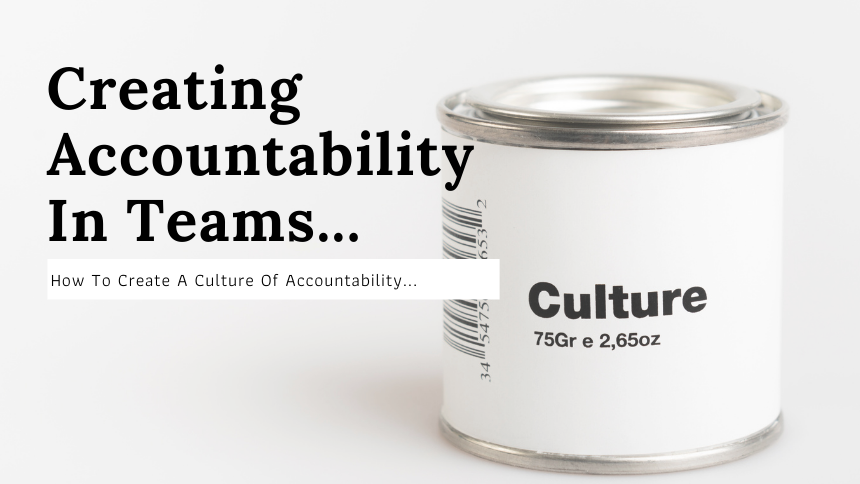
It is my firm belief that the vast majority of people come to work to do the right thing by your business, you, their boss, and themselves. Of course, there are always some which are there to test us, and in my opinion, hone our leadership skills. However, when it comes to accountability, my observation is 99 times out of 100 the problem is not the employee or the culture, but rather the leader of the culture.
One of my mentors puts it very bluntly “you get the staff you deserve”.
Have you ever said, “I’m going to sack them all and start again”? Well, you can. Do it, move on and build a new team. Here’s the kicker though, if your leadership approach doesn’t change, you’ll likely be in the same place again, with the same sort of culture of no accountability in a very short while.
Research has shown that good people leave a business because of the leader. I also firmly believe that unaccountable people stay in business because of the leader. Usually, the accountable leave and the unaccountable stay for the very same reason.
The star performers in your organisation want to be surrounded by people who are also accountable and being held to account. When everyone in the team is committed to the company mission, people come together in service of the mission and it creates the conditions for a culture of accountability.
However, what typically happens in an organisation is the one or two accountable employees are the ones who end up picking up the slack for the rest of the team. When the owner and/or management team of the business leave this to run unchecked, they become frustrated and ultimately resentful about the lack of leadership. At some point they decide it’s not worth it and they walk.
Conversely, the employees who are not held to account see they can keep getting away with whatever they are doing or not doing. As they have no desire to do more than what they are currently doing, and management are tacitly endorsing their behaviour by saying nothing, these people are practically jumping for joy.
When you, or your leadership team, consistently turn a blind eye to what is going on within the team, your high-performers quickly lose respect for you and your company. Your or your leadership team are not actually leading, because you’re letting the unaccountable get away with murder! They know this, and use your inaction to their advantage.
A productive, culture of accountability starts with us – the leaders. I encourage you to review the following traits of accountable leaders, and reflect on to what extent are you actioning these in your day-to-day. The accountable is able to:
How many of those could you confidently say, “Yes, I am that accountable a leader”? On the other hand, how many would you say, “I acknowledge my accountability competence ranking needs some improvement”?
When it comes to leadership, it’s not a just about getting it’s started; it’s about consistently doing what’s needed to be done, in order to see it through until success is achieved. (Action + Attitude)
How much leadership accountability commitment do you have?
How many of those characteristics could you confidently say, “yes that’s how accountable a leader I am”? On the other hand, how many would you say, “I acknowledge my leadership accountability ranking needs some improvement”?
Great leadership requires you to look in the mirror and understand how you are influencing and impacting people. The more you reflect on your own leadership accountability, own your current leadership accountability ranking and take strong action to improve it, the higher you will move up the scale of leadership accountability.
And as you move, you’ll improve your ability to influence and impact your people to move up the scale of a culture of accountability. Then not only will you have an incredible team, which you’ll rightfully deserve, you’ll also have the results you want too.
Rob and I have been working with business owners to develop cultures of accountability, using human-centred leadership strategies for over nearly eighteen years – way before it was cool. If you’d like to create a culture of accountability in your business, reach out for a confidential, no-obligation discussion. We’re here to work with you to achieve the business and life you deserve for you and your family.
What does it take to actually remove yourself from the day-to-day grind of business? Learn from our panel of Business Owners who've Been There, Done That.